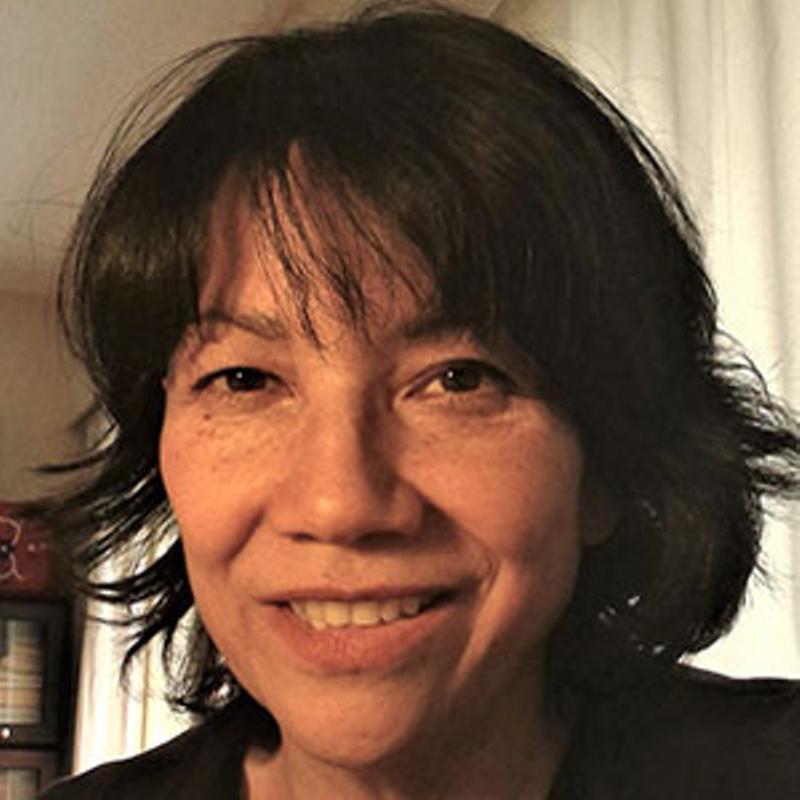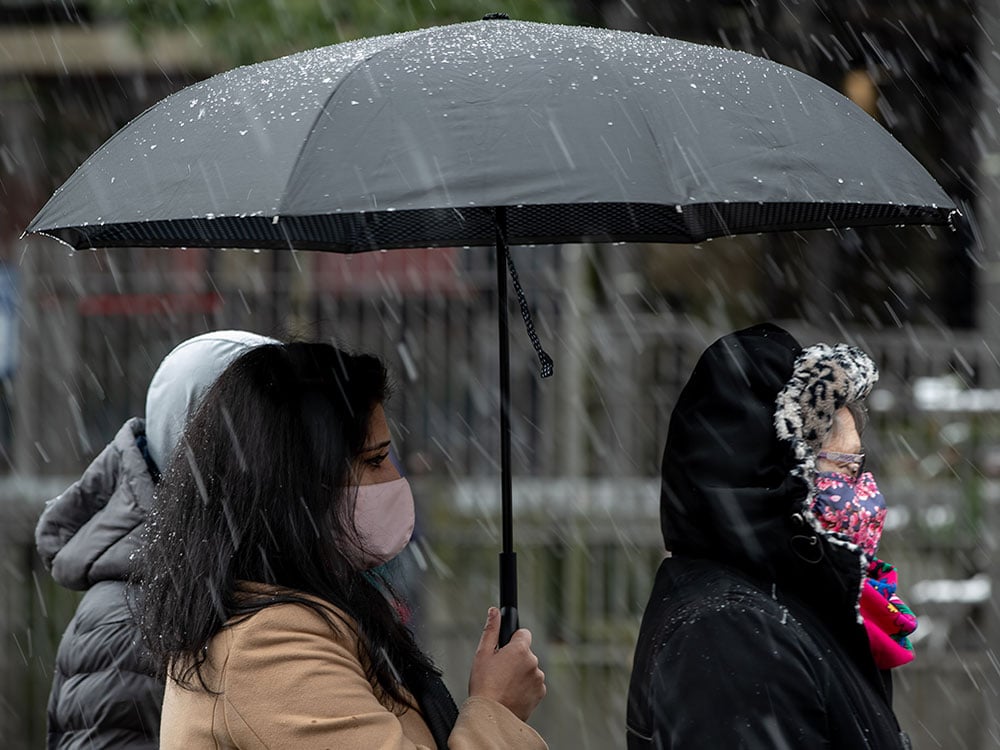Over the last two years, the alarming increase in gender-based violence around the world has been dubbed “the shadow pandemic.” According to the United Nations, global data shows an increase in calls to domestic violence helplines since the outbreak of COVID-19. About half of all shelters across Canada reported an increase in the number of crisis calls during the pandemic.
Our own crisis line at Battered Women’s Support Services in Vancouver, serving all of B.C., has received 94,736 calls since March 2020 — an almost three-fold increase compared to the previous two-year period between 2018 and 2020. Many of those calls came from women isolated at home with their abusive partner.
While there has been some reporting about the rise of intimate partner violence during the pandemic, there has been little attention paid to the specific experiences of Indigenous survivors, specifically Indigenous women and girls, Two-Spirit and non-binary people.
According to a 2020 survey done by the Native Women’s Association of Canada, nearly one in five Indigenous women reported that they had experienced physical or psychological violence since the pandemic began, often by an intimate partner. According to Statistics Canada’s own data, 21 per cent of women residents and 22 per cent of accompanying children in gender-based violence shelters during the pandemic were Indigenous.
In 2022 in B.C., Tatyanna Harrison, Alysia Strongarm, Noelle "Elli" O'Soup, Keara Joe, Carmelita Abraham, Teesha Danroth, Shirita “Simone” Beans and Chelsea Poorman have all gone missing or died under suspicious circumstances. This violence, including the intergenerational impact of residential schools and the Indian Act, stems from ongoing gendered colonialism — what the National Inquiry into Missing and Murdered Indigenous Women and Girls found amounted to genocide.
This is why our organizations, the BC Association of Friendship Centres and Battered Women’s Support Services, in partnership with the University of Victoria, have undertaken a community-based research project called “The Road to Safety: Indigenous Survivors in BC Speak Out against Intimate Partner Violence during the COVID-19 Pandemic” to better understand and raise awareness about the experiences of intimate partner violence that Indigenous survivors were facing during the pandemic.
We knew from our frontline conversations with Indigenous women accessing our services that they faced novel challenges, on top of pre-existing barriers, to accessing services in their communities during these tumultuous times. As Indigenous and anti-violence organizations with decades of work in this province, our research was guided by the methodology of “by and for Indigenous women” and involved surveys and first-hand interviews with Indigenous women, Two-Spirit and non-binary survivors across the province.
Many Indigenous survivors offered their stories and recommendations to prevent others from experiencing intimate partner violence and to share their vision of a road to safety.
Here’s what we found through our research.
1. Violence was made worse by pandemic health measures and isolation
We found that the unintended consequences of the pandemic were that Indigenous people experienced an increase in frequency and severity of intimate partner violence, which was exacerbated by provincial stay-at-home orders and the social isolation they brought about.
Approximately 85 per cent of survey respondents reported an onset of intimate partner violence during the pandemic, and 77 per cent of survey respondents reported an increase in intimate partner violence during the pandemic.
Further, the pandemic affected survivors’ ability to find safe services and supports when attempts to flee violence were made. Around 67 per cent of survey respondents indicated challenges in accessing services during the pandemic, with 30 per cent saying that support services were closed.
For many Indigenous survivors living away from urban centres, access to support services was even more challenging.
As one Indigenous survivor we interviewed told us, “We live in the North right, it’s already pretty isolated up here as is. When you feel alone, you feel alone. It’s hard to remember that you’re not alone, especially when you’re going through something like intimate partner violence.”
2. Colonialism and racism are widespread
Second, we found that colonialism not only lays the foundation for the many ways that Indigenous women and girls and Two-Spirit and non-binary people experience intimate partner violence, but it also reinforces the barriers Indigenous survivors face when accessing safety and justice.
Overall, Indigenous survivors who participated in our research project reported experiencing widespread racism. They fear child apprehension and police when reporting violence. They lack accessible and safe housing, transportation and child care when fleeing violence. They experience inadequate access to anti-violence services, many of which have growing waitlists and provide culturally unsafe services.
These barriers form an interrelated, entrenched system of oppression for Indigenous women and Two-Spirit and non-binary people that amplifies the brutality of intimate partner violence. This means that solutions must be holistic and focused on the full spectrum of violence that Indigenous women and Two-Spirit and non-binary people are subjected to — from interpersonal to institutional violence.
3. Safe housing is hard to find
In particular, the pandemic intensified the existing challenge of finding safe housing. The pandemic also limited spaces in transition houses, limited the willingness of family and friends to house those fleeing abuse and increased the duration that survivors needed to stay in safe homes because they were unable to find secondary housing.
One anti-violence support worker informed us, “Many of the Indigenous women that we have served over the last two years are coming through as chronically homeless. So, they actually have no housing or are kind of couch-surfing or precariously housed. This is a very dangerous trend and especially for women, it leaves them much more vulnerable.”
It is abhorrent that any Indigenous person is homeless on their own homelands.
4. A mistrust of child welfare and policing systems
Many Indigenous survivors also identified that fear of being reported to the Ministry of Children and Family Development and the fear of police involvement were key barriers they encountered when escaping and reporting gender-based violence.
Given the continuation of colonial gendered violence throughout current child welfare and policing systems, it is no surprise that Indigenous survivors are deeply mistrustful of these institutions to protect them.
As one person put it, “Locked in a bathroom, scared, nowhere to go and fearful of calling the police and making it worse. Or having the police involved and taking my kids, or siding with him.”
These forms of violence are distressing and destructive, and the government must end these colonial forms of violence immediately.
5. A need for cultural safety
Finally, Indigenous survivors identified that interacting with non-Indigenous staff in anti-violence support roles impacted their ability to meaningfully access support.
Around 47 per cent of survey respondents did not have access to an Indigenous-run transition home or safe house with culturally safe supports.
“I’ve really never had an Indigenous support worker, hardly ever,” one survivor told us. “And I go to my band office but we usually have white women working there.”
Several Indigenous survivors felt judged, excluded, unsafe, fearful and uncomfortable accessing mainstream gender-based violence services.
Still today, most of the available funding that goes towards addressing violence against Indigenous women is not held by Indigenous organizations.
The anti-violence organizations that do receive these scarce resources also reflect a distressing lack of representation of Indigenous women and girls and Two-Spirit and non-binary people in leadership roles.
The road to safety
There is a clear and urgent need for more Indigenous-led anti-violence services, safe homes and transition homes in B.C.
Indigenous communities must receive adequate funding to establish and operate programs by and for Indigenous people, which includes Indigenous-run 24-7 crisis support for Indigenous women and girls and Two-Spirit and non-binary people across B.C.
Perpetrators know they can get away with sexist, colonial violence against Indigenous women. Gendered colonial violence and systemic barriers to safety continue to create a culture of exclusion, with an unacceptable lack of supports available to Indigenous women and their families and glacial inaction by all levels of government to the Calls for Justice by the National Inquiry into Missing and Murdered Indigenous Women and Girls.
We urgently need decolonial, culturally relevant, trauma-informed, feminist support services that ensure the safety of Indigenous survivors of intimate partner violence.
This is an urgent state of crisis. ![]()
Read more: Indigenous, Rights + Justice, Gender + Sexuality

















Tyee Commenting Guidelines
Comments that violate guidelines risk being deleted, and violations may result in a temporary or permanent user ban. Maintain the spirit of good conversation to stay in the discussion.
*Please note The Tyee is not a forum for spreading misinformation about COVID-19, denying its existence or minimizing its risk to public health.
Do:
Do not: